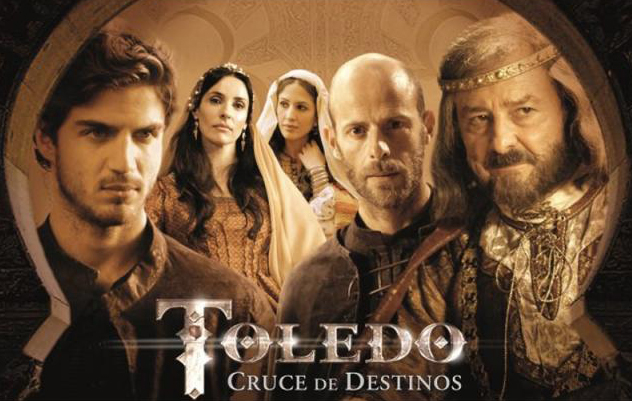Gregory Hood’s nice article on the American left’s chutzpa about John F. Kennedy’s assassination, and the fact that in the current System “you are allowed to say that everyone killed Kennedy except the person who actually killed him (a Communist),” moves me to say something.
Most white nationalists don’t have the IQ of Magnus Carlsen and in addition to the silly 9/11 conspiracy theories, along a nation of sheeple they also swallow other theories for the retarded.
All of these people remind me a passage from Orwell’s 1984 where the proles were under the impression that they were reading forbidden porn when actually that porn together with superficial literature, movies and music was prolefeed deliberately produced by Prolesec: a section of the Ministry of Truth to keep them content and make them feel different when in fact they were mere sheep.
Following is part of an article-interview authored by Robin Lindley, a Seattle attorney and writer:
Dallas, Texas. Fri., Nov. 22, 1963. President John F. Kennedy died after a sniper attack on his motorcade. For many, the assassination remains a mystery. A 2003 poll revealed that 75 percent of Americans believe there was a conspiracy behind the killing of President Kennedy.
Jackie Kennedy catches a photographer’s eye while riding in the presidential limousine on Nov. 22, 1963. This picture was taken 2.5 seconds before Lee Harvey Oswald fired the bullet that killed President John F. Kennedy and wounded Gov. John Connelly, seated in the front passenger seat.
In his massive 2007 book on the murder, Reclaiming History: The Assassination of President John F. Kennedy, former Los Angeles prosecutor Vincent Bugliosi concludes that an unstable Lee Harvey Oswald acted alone in killing Kennedy, and incisively dissects every conspiracy theory: the CIA, the FBI, the KGB, Castro, the mob, LBJ, and others.
This weighty, 1600-plus page book—with a CD ROM of more than one thousand pages of endnotes—has been praised for its comprehensive narrative and its presentation of conspiracy theories, exposing selective use of evidence and flawed logic. The Los Angeles Times Book Review called Reclaiming History “a book for the ages.” Critics agree that it will be a starting point for future researchers.
Bugliosi worked from 80 too 100 hours a week for the past few years, drafting Reclaiming History by hand on legal pads. He concluded that Oswald acted alone, and said, “All of the conspiracy theories and beliefs turned out to be ‘moonshine.’ ” Bugliosi, 72, recently discussed the JFK case from his Pasadena home.
Did you agree with the Warren Commission report in 1964?
I was so immersed in trying one murder case after another that I had no opinion. I [assumed] they were decent, honorable men, and they certainly were.
You conclude that Oswald shot JFK and acted alone.
Everything pointed toward Oswald’s guilt. All the physical evidence, all the scientific evidence. Everything he said, everything he did. Fifty-three separate pieces of evidence point toward his guilt. It would not be humanly possibly for him to be innocent. Quickly, five pieces: Oswald’s Mannlicher-Carcano rifle was the murder weapon. Oswald was the only employee at the Book Depository Building who fled the building after the assassination. Forty-five minutes later, he shot and killed [Dallas Police] Officer J. D. Tippit—the signature of a man in desperate flight. Thirty minutes later at a Texas theatre he resisted arrest, [and] pulled a gun on the arresting officer. During his interrogation, he told one provable lie after another, [showing] a consciousness of guilt.
And you find that Oswald was not part of a conspiracy to kill JFK.
I am convinced beyond all doubt that Oswald killed Kennedy, [and] that there was no conspiracy. There’s no credible evidence that the mob or the CIA, the KGB, the military-industrial complex, [or others] were behind the assassination. All we have is naked speculation.
There’s no evidence that Oswald had any connection with any of these groups. Even [assassination researcher Harold] Weisberg conceded that the FBI checked out every breath [Oswald] breathed from the moment he arrived back to the States from the Soviet Union on June 13, 1962 to the day of the assassination. They found no evidence after 25,000 interviews [of a] connection with any of these groups.
Assuming one of these groups wanted to kill the President, Oswald would have been one of the last people they would have gone to. He was a good shot, but not an expert. He owned only a $12, mail-order rifle. And he was notoriously unreliable, extremely unstable. He defect[ed] to the Soviet Union, tried to become a Soviet citizen, [was] turned down, [then] tried to commit suicide. Just the type of guy—I’m being sarcastic now—the CIA or mob would rely on to commit the biggest murder in American history.

What motivated Oswald to kill President Kennedy?
No one will ever know for sure why Oswald killed Kennedy. But there are pieces of circumstantial evidence from which we can draw inferences.
Oswald had delusions of grandeur. A squad mate of his in the Marines said that Oswald wanted to be something that 10,000 years from now people would be talking about. His wife, Marina, said he compared himself to the great figures of history.
Getting more specific, Oswald revered Fidel Castro [and] was an ardent supporter of the Cuban Revolution. In late September of 1963, [he] tried to get to Havana to help Castro, and was rejected at the Cuban consulate in Mexico City. He got very, very angry. I agree with the Warren Commission and the House Select Committee on Assassinations that Oswald’s love for Castro played a part in the motivation to kill Kennedy, thinking that by killing an enemy of Castro he somehow was furthering the Cuban cause.
Oswald wrote that he had lived under capitalism and communism, and that, “I despise representatives of both systems.” My background in the Manson case definitely played a part in the words meaning more to me than perhaps the average person. Manson did not know the people whom he had killed, but he knew they were members of the establishment, and he hated the establishment. These were representative murders. Oswald did not hate Kennedy. He hated the United States of America. Oswald may have used Kennedy as the quintessential representative of society. When shooting at Kennedy, he was shooting at the United States of America.
Oswald failed in many pursuits. Did he kill JFK to show some effectiveness?
He had been a failure everywhere. He was a failure in the Marines, [and] was court-martialed. He was a failure at work: he would get fired, or couldn’t get a good job. He was a failure with Marina, his wife. He had been a failure all of his life, and all of a sudden he had done something successfully.
You also conclude that Jack Ruby acted alone in killing Oswald.
Some argue that Ruby silenced Oswald for the mob, and that presupposes Oswald killed Kennedy for the mob. The Warren Commission and the FBI found no evidence that Ruby was ever a member of organized crime, or had any association with them.
He would have been, like Oswald, an extremely unlikely and bad hit man. Ruby was extremely close to Dallas law enforcement. He also was a blabbermouth, [and] a snitch to the Dallas Police Department. He was not the type of guy you would [use] to commit a crime and be silent. Also, Ruby was very mentally unbalanced. He had a violent temper, fighting all the time with customers. He had organic brain damage.
People say he silenced Oswald for the mob [but] who was supposed to silence Ruby? He lived a normal life. He died in custody, but died a normal death three years later.
Why did Ruby kill Oswald?
Ruby literally idolized John F. Kennedy. His psychiatrist said Ruby loved this man. He took Kennedy’s death very, very hard. And he hated Oswald. But another reason [was that] Ruby thought that he was going to become a hero, [and] there was going to be a big book and a movie about him. He thought he would just get a slap on the wrist, and in a short time he would be back at the Carousel Club greeting people wanting to shake the hand of the man who killed the man who killed the President.
How did the single “Magic Bullet” kill JFK and wound Gov. Connelly?
In their sketches, [conspiracy theorists] place Gov. John Connelly [directly] in front of President Kennedy in the presidential limousine, and then argue that a bullet coming from the right rear, passing through Kennedy, would have to make a right turn in midair and then a left turn to hit Connelly. That is wrong. Connelly was not seated directly in front of Kennedy, but the left front in a jump seat a half-foot in. So the orientation of Connelly’s body was such that a bullet passing in a straight line through Kennedy would have nowhere to go except to hit Connelly.
A story just appeared on bullet fragments from the Dallas scene.
That’s an old story. These former FBI agents came up with this statement and people are asking about this new story. Here’s how new it is—it’s already in my book.
To put it mildly, you were displeased with Oliver Stone’s movie JFK.
This silly Oliver Stone came up with 10 groups that had a motive, and he’s got all 10 groups involved in the assassination. I present 53 separate pieces of evidence pointing irresistibly to the guilt of Oswald and poor Oliver in his three-hour-and-eight-minute movie could not put in one of those 53 pieces.
Stone’s movie stresses how JFK’s head snapped to the rear, indicating a shot from the front.
People saw [the Zapruder film] for the first time in 1975 on national television. The [president’s] head snapped to the rear [indicating a] shot from the front, the grassy knoll, not from the rear where Oswald was.
But if you look at the individual Zapruder frames—you can’t see it by looking at the film—at frame 312 the president’s head is okay. Also, a high-contrast photo of frame 313 [shows] this terrible spray of blood and tissue all to the front, indicating a shot from the rear.
At [frames] 314 to 321, you have the head snap to the rear, caused by a neuro-muscular reaction. The bullet entering the president’s brain caused the back muscles to tighten, which in turn caused the head to snap to the rear.
At more than 1,600 pages, your book is the longest yet on the assassination.
It’s the only book that settles all questions about the assassination once and for all, and the only book to take on all of these conspiracy theories.
There are two realities in this case. One, this is a very simple case. Within hours of the shooting in Dealey Plaza, virtually all of Dallas law enforcement knew that Oswald had killed Kennedy, and that he had acted alone. But the second reality and the main reason for the length of this book is the unceasing and fanatical obsession of literally thousands upon thousands of Warren Commission critics and conspiracy theorists who have investigated every single conceivable aspect of this case for close to 44 years. This simple case has been transformed into the most complex murder case, by far, in world history.
What’s your next project?
A series of essays on all types of things. It’s not going to be a 1,600-page book. With the Kennedy case, I learned there is absolutely no bottom to the pile. It’s a bottomless pit.
_______________________________
A note for those who still swallow the prolefeed manufactured by the Prolesec: Unless you have read Bugliosi’s book, don’t bother to take issue with us in the comments section of this thread. You will be shunned. (Also, you can read the whole Robin Lindley article here.)













